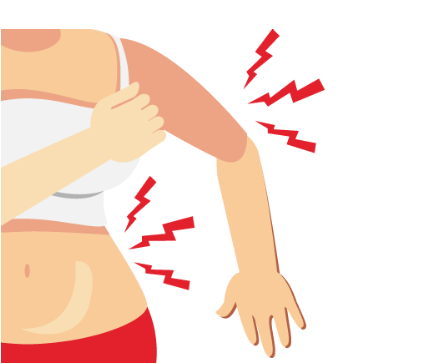
When people who are new to the keto diet start it for the first time, they may experience various side effects that might make them confused and wonder what’s going on. However, fear not, because most of these side effects are common and can be cured with simple solutions.
Keto Flu
One of the common side effects that people new to keto experience is what some call the keto flu, because they experience symptoms similar to that of the flu. These symptoms may include headaches, feeling tired, nausea, and lack of energy. These symptoms normally manifest because on the keto diet, the body is transitioning from sugar burning to fat burning for energy. During this process, the body dumps its glycogen stores and also salt, water and electrolytes.
So flu-like symptoms are caused by dehydration and deficiency of salt and electrolytes.
To battle these side effects, you just need to drink plenty of fluids, replenish your salt and electrolytes, and consume more fat. Eating more fat will keep your energy levels up and help you feel satiated. To get more electrolytes in your system, we recommend a Keto Electrolyte Formula that is specifically designed for the keto diet: striveketo.com/electrolytes
Muscle Cramps
Another common side effect of keto is muscle cramping, especially leg cramps. Muscle cramping can occur when there is an imbalance of minerals and electrolytes or when you are dehydrated. When starting on the keto diet and eliminating carbs from your body, it produces less insulin, which normally processes these carbs. When there is less insulin in your system, your kidneys will absorb less sodium, which will get released in your urine and cause a sodium deficiency and electrolyte imbalance.
Simply, electrolytes are minerals with positive charges that are found in all bodily fluids, and they work to push fluid throughout your cells to keep you hydrated. They are involved in several bodily functions, mainly those involving muscles and nerves. When you experience an electrolyte imbalance, it usually involves magnesium, potassium, and sodium. A deficiency of these electrolytes in your body is a sure-fire way of inducing muscle cramps.
Another possible cause of cramping can be dehydration. When you transition into ketosis, your body first uses up all its glycogen stores before switching to fat burning for energy. Glycogen is attached to water in the body, so when glycogen stores are used up, excess water is freed and leaves the body through urination, which can result in dehydration.
Other possible causes of leg cramps can be ingesting too much caffeine, exercising without hydrating, and being overly sedentary. Caffeine is a diuretic and may contribute to dehydration, and it can also stimulate muscles to contract. When it comes to exercise, sweating in large amounts can cause significant loss of water and electrolytes from your body, which need to be replenished or can cause cramping. Also, when you sit or don’t move for long periods of time, your muscles can tighten up and cause cramps, so be more physically active and keep those muscles moving.
So how do you cure these muscle and leg cramps? The easiest first step is to drink more water and stay fully hydrated throughout the day. How much water should you be drinking? Take your body weight in pounds and divide it by two. This is the number of ounces of water you should be drinking throughout the day to maintain healthy levels of hydration. If you drink coffee, add another cup of water to your daily water requirements to offset the dehydrating effects of the coffee. Also drink plenty of water when you exercise.
Next, you want to make sure you are getting enough electrolytes, especially sodium, magnesium and potassium, to avoid being deficient. You can add Himalayan salt to your diet to get more sodium and eat more healthy foods that are good sources of magnesium and potassium. The easiest way to ensure you are getting enough electrolytes is though electrolyte supplements, such as this special keto electrolyte supplement: striveketo.com/electrolytes
Constipation
When transition to a low-carb diet, constipation is a possible side effect caused by your digestive system needing to adapt to your new diet. Good-quality fiber is a solution to constipation because it keeps the intestines moving. However, many sources of fiber are high in carbs, and the keto diet avoids these types of high-carb sources of fiber. Therefore, you need to be more proactive in finding low-carb options of fiber, which include non-starchy vegetables and ground flaxseed.
Another common cause of constipation is dehydration, which causes the body to absorb more water from the colon and digested food becomes dryer and harder. This means you should drink more water and keep fully hydrated to avoid these side effects.
Another solution to constipation for those on keto is taking MCT oil. Not only does it help people avoid constipation, MCT oil is also important for helping your body burn more fat, lowering insulin and cholesterol levels, providing more energy, and also keeping your brain healthier.
Heart Palpitations
When transitioning to keto, it’s not uncommon to experience a slightly elevated heart rate or a more pronounced heartbeat. One common cause is dehydration and a lack of salt, which decreases the amount of circulating fluid in the bloodstream and forces the heart to pump harder to circulate blood.
The cure for this symptom is simple: Just drink more water and get more salt in your diet. Also making sure you’re getting enough electrolytes everyday can help improve your heart and circulatory functions, which you can get from keto electrolyte supplements.
So all in all, most of these common symptoms for those new to keto can be cured by simply drinking more water to stay fully hydrated and replenishing your salt and electrolyte levels. Because it can take weeks for your body to fully adapt to ketosis, you may experience residual symptoms until your body adjusts to its new metabolic state.
For those of you on medication for certain conditions such as diabetes or high blood pressure, you may experience symptoms caused by the keto diet changing your physical condition. For example, those with diabetes may experience a lowering of blood sugar levels, which may mean that their current dosage of medication is too high and needs to be adjusted. Similarly for those with high blood pressure may experience a lowering of their blood pressure levels and may need to have their medication dosage adjusted accordingly.
